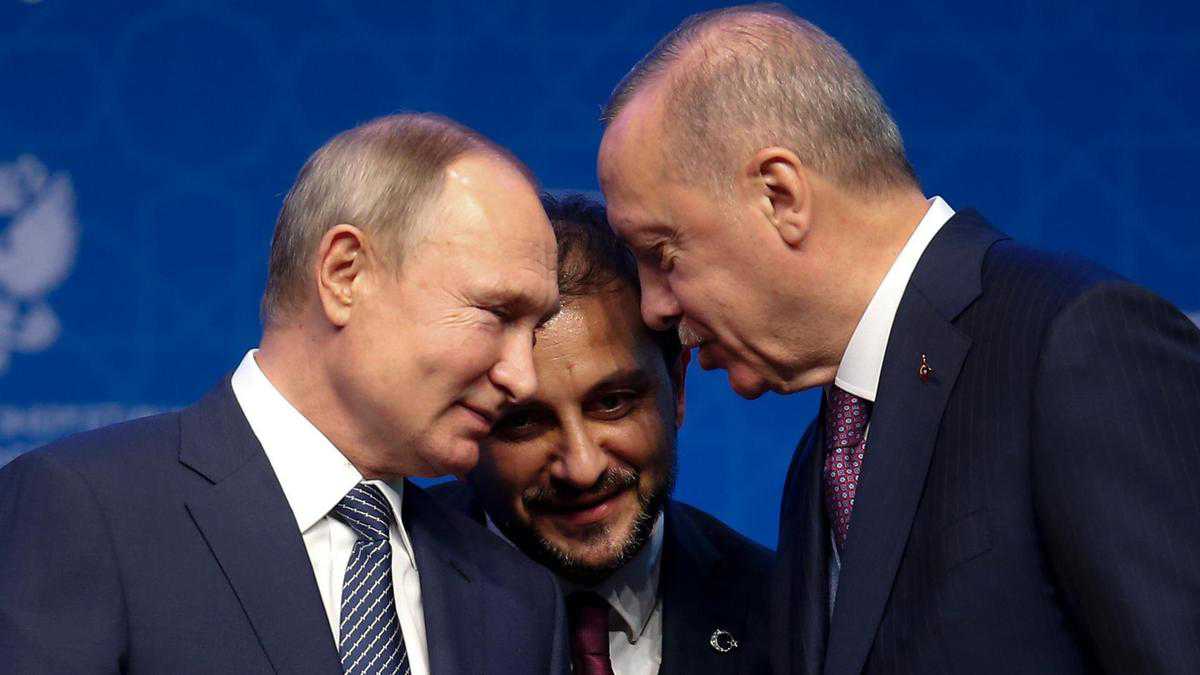Turkey and Russia doing deals over the parallel fates of Syria and Libya
15 January, 2020

The Libya peace talks may have broken down after a day but Russia and Turkey, who sponsored a ceasefire, seem determined to pursue a deal amid speculation of wider interests in the negotiations.
While the focus has been on Libya, there is growing suspicion the talks are linked to the nine-year civil war in Syria, where, as in Libya, Moscow and Ankara back opposing sides.
Observers have said the joint mediation efforts mirror those in Syria, where Turkey, Russia and Iran launched the Astana process in 2017 aimed at creating a post-conflict roadmap for Syria.
“There’s a connection between Libya and Syria,” said Alexey Khlebnikov, a Middle East expert and Russian foreign policy analyst at the Russian International Affairs Council in Moscow.
“Turkey started to take more aggressive and decisive moves on the Libya front as it has no room to expand its influence in Syria. Libya serves as additional leverage towards Russia.”
Since Russia became directly involved in 2015, Turkey’s goals in Syria, which once included the overthrow of President Bashar Al Assad, have become more distant.
The rebels it backs have found themselves isolated in the northwestern province of Idlib, seemingly at the mercy of Syrian government attacks backed by Russian air power, while hundreds of thousands of displaced civilians have headed towards the Turkish border.
October’s incursion into northeast Syria to push back Kurdish fighters has seen Turkey’s initial goal of establishing a broad security corridor along its border between the River Euphrates and Iraq reduced to a much smaller sliver of land jointly patrolled by Turkish and Russian troops. Syrian regime forces have also moved into the area.
The Libya talks in Moscow came after Russian President Vladimir Putin and Turkey’s Recep Tayyip Erdogan surprised the world last week by announcing a January 12 ceasefire between the rival factions.
On Monday, Field Marshal Khalifa Haftar, who heads the eastern-based forces that have besieged Tripoli since April, and Fayez Al Sarraj, head of the Government of National Accord, were due to formalise the truce but instead left without an agreement.
Moscow maintains ties with both sides.
Russian Foreign Minister Sergei Lavrov urged all sides to return to negotiations while Mr Erdogan told his party’s MPs on Tuesday that it was “now up to Putin and his team” to bring Mr Haftar back to the table.
Despite their differences over Syria, Turkey has become increasing close to the Kremlin with improved defence, trade and energy links in recent years. Last week’s ceasefire announcement took place after the Istanbul unveiling of a Black Sea gas pipeline to supply Russian gas to Europe via Turkey.
“When Putin and Erdogan met on January 8 they discussed both Syria and Libya and what’s interesting is that after the meeting, on January 12, Damascus also announced a ceasefire [in Idlib],” Mr Khlebnikov said.
He noted that it was “indicative” that had Mr Putin stopped off in the Syrian capital before arriving in Istanbul. “Most probably it was to make sure Assad was ready to commit to a cessation of hostilities so [Putin] could strike further deals with Erdogan.”
The Moscow summit was an attempt for Russia to extend an Astana-like process to Libya, Mr Khlebnikov added.
It also saw Turkish intelligence chief Hakan Fidan meet his Syrian counterpart, Ali Mamlouk. Although they have met since Turkey severed ties with Damascus in 2012, it was the first time such a meeting had been officially acknowledged.
A Turkish official said they discussed working against the Kurdish People’s Protection Units, or YPG, which controlled Syria’s northeast prior to Turkey’s incursion in October.
Syrian state media said Mr Mamlouk called for Turkish forces to leave Syria and respect its sovereignty and territorial integrity. Turkey controls swathes of northern Aleppo province as well as having troops acting as observers in Idlib.
“Turkey needs Syria right now because Syrian intelligence have a far better handle on which terrorist groups might be a threat to Turkey,” said Kamal Alam, a London-based military analyst specialising in Turkey and Syria.
“This includes Syrian groups that Turkey’s backed themselves who could turn against Turkey and of course Kurdish groups which Syria has always had better intelligence about.”
He added: “The Syrians have told Turkey ‘We will not give you any intelligence cooperation until you withdraw forces or stop backing terrorists.’”
Referring to Russian-Turkish ties, Mr Alam said the two hold “almost daily” exchanges on joint interests, whether it be Syria, defence, energy or trade.
“The Turkey-Russia relationship is moving to an extremely important strategic economic relationship,” he said, adding that both countries are aiming to form a three-way deal with Syria for post-conflict reconstruction.
Source: www.thenational.ae
